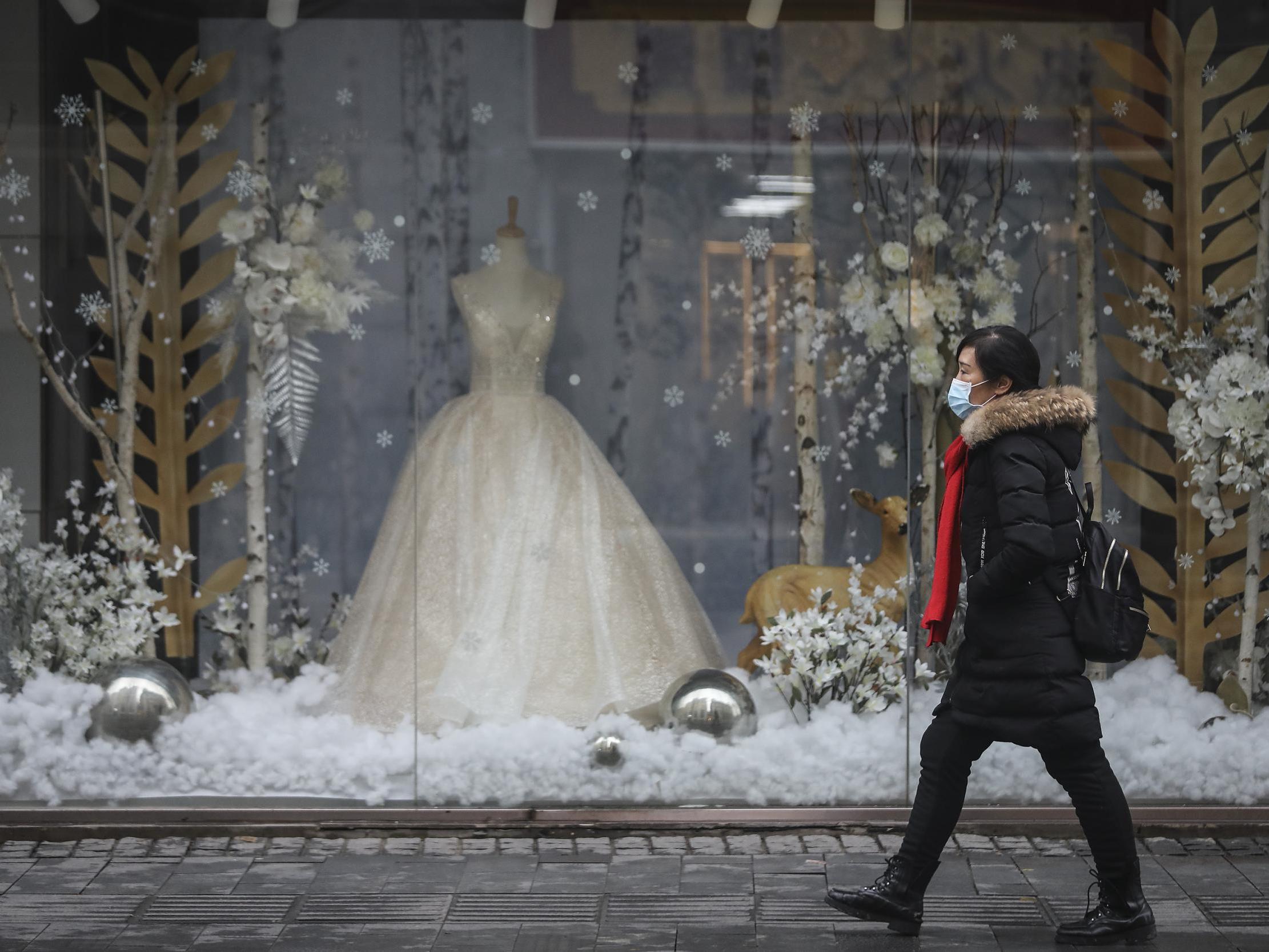Domestic abuse database for couples contemplating marriage launched in China
‘In many cases, the parties involved only know about domestic violence after marriage,’ says vice chair of Yiwu Women’s Federation

Your support helps us to tell the story
From reproductive rights to climate change to Big Tech, The Independent is on the ground when the story is developing. Whether it's investigating the financials of Elon Musk's pro-Trump PAC or producing our latest documentary, 'The A Word', which shines a light on the American women fighting for reproductive rights, we know how important it is to parse out the facts from the messaging.
At such a critical moment in US history, we need reporters on the ground. Your donation allows us to keep sending journalists to speak to both sides of the story.
The Independent is trusted by Americans across the entire political spectrum. And unlike many other quality news outlets, we choose not to lock Americans out of our reporting and analysis with paywalls. We believe quality journalism should be available to everyone, paid for by those who can afford it.
Your support makes all the difference.People living in a city in eastern China will be able to check if their partner has a known history of domestic abuse before marrying them in a new pilot scheme.
The database, which will come into force from 1 July in the city of Yiwu, is believed to be the first type of service in the country.
The system will contain information about individuals from across China who have been convicted, slapped with restraining orders which bar them from going near their ex-partners or imprisoned due to domestic abuse since 2017, a memo on the Yiwu government website stipulates.
“In many cases, the parties involved only know about domestic violence after marriage,” Zhou Danying, vice chair of Yiwu Women’s Federation, one of the government institutions behind the scheme, told a state press outlet called the Paper.
“By establishing an inquiry database, partners can know beforehand and consider whether to marry”.
The pilot scheme involves six government departments and brings together the police, municipal court, and a local arm of the All-China Women’s Federation.
China saw a threefold increase in cases of domestic abuse reported to police stations in February during the coronavirus lockdown in comparison with the year before.
But women in dire need of fleeing their homes were not able to access permits to leave the city and escape their abusers – with the hashtag #AntiDomesticViolenceDuringEpidemic #疫期反家暴# gaining traction on social media.
Public officials have enforced stringent rules around the new database and individuals utilising it have to hand over their application to the marriage registry office as well as signing a confidentiality contract. People also have to hand over both their own and their partner’s ID.
While in the UK, no such database exists a Domestic Violence Disclosure Scheme called Clares Law, which is named after Clare Wood who was murdered in 2009, enables people to apply to the police to find out if their partner has a history of domestic abuse.
But the UK government has been urged to tackle institutional failures that allow serial abusers to subject multiple women to domestic violence and stalking.
The Independent recently reported Labour’s Yvette Cooper has put forward an amendment to the Domestic Abuse Bill calling for a new category of offender, to include perpetrators of domestic abuse and stalking who are “high risk” or who repeatedly abuse victims. The landmark legislation is in its final scrutiny stages in parliament.
Ms Cooper says serial stalkers and domestic violence perpetrators should be monitored using the existing violent and sexual offenders register (Visor).
Laura Richards, a former top Metropolitan Police violent crime analyst who helped Ms Cooper draw up the amendment, told The Independent registering domestic abusers in the same way was supported by charities and local police commissioners.
Ms Richards, who helped develop the domestic homicide review process in the early 2000s and is a former adviser to the National Police Chiefs Council, said her work at Scotland Yard from 2001 to 2004 had shaped her understanding about the “evolving and escalating abuse” of serial domestic violence offenders, stalkers and serial killers.
She said: “I realised most of the offenders have a history of domestic abuse. It is a pattern of behaviour that is routinely ignored and dismissed time and time again.
“Shana Grice, Janet Scott, Pearl Black, Lina Kenza, Maria Stubbings, Keri McAuley, Molly McLaren, Hollie Gazzard, Justene Reece, Kirtsy Treloar, Jane Clough, Alice Ruggles, and Linzi Ashton were murdered by serial perpetrators who had been violent and abusive to other women before they killed them.
“I have worked on many cases over the years with the same failures and the same patterns. When women and girls report the known men who abuse them, the perpetrator’s behaviour is most often left unchecked, despite the fact they may have abused multiple women. The same mistakes are repeated – which is tantamount to institutional incompetence. Men who are capable of abusing the person they love the most are often capable of abusing others.”
Join our commenting forum
Join thought-provoking conversations, follow other Independent readers and see their replies
Comments